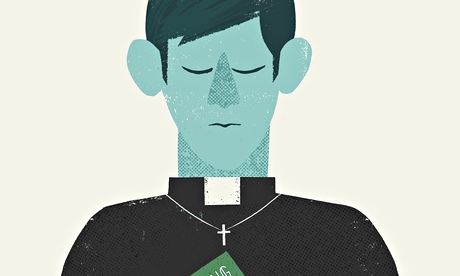
It's often been observed that food is our new religion. Hot new restaurants are its temples; celebrity chefs its high priests; indeed, rumour has it that a forthcoming BBC series will consist solely of footage of Richard Dawkins travelling the UK shaking his fist angrily at the windows of high-end dining establishments. Meanwhile, a new book entitled The Chef Says, a collection of pronouncements from the world's top cooks, has the feel of scripture. "A salad with too many walnuts or a sauce with too many capers is like a Sunday with too many free hours – you stop appreciating the pleasure they provide," says April Bloomfield, of New York's Spotted Pig gastropub. "You need an entire life just to know about tomatoes," offers Ferran Adrià, formerly of El Bulli, a statement that's either staggeringly profound or – and I'm just putting this out there – not.
Still, most religions include a kernel of good sense, and one bit of culinary doctrine that's enjoying a well-deserved renaissance, in pop-psychology and business circles, is the "mise en place". Translated literally, this means "putting in place", and refers to making sure you've got everything to hand before you begin, positioning your ingredients and equipment tidily, in order and in reach. To chefs, mise en place is a way of being. "As a cook," writes Anthony Bourdain, "your station, and its condition, its state of readiness, is an extension of your nervous system." An instructor at the Culinary Institute of America told National Public Radio that once students there are fully schooled in the "meez", as it's known, you "should be able to blindfold them, they should know that their tongs are always here, their oil is always right here, their salt and pepper is always right here."
The mise en place, then, is a ritualised alignment of inner and outer environments, even a merging of chef with kitchen. Or if you like your explanations more down to earth – less Fat Duck, more Brewers Fayre – consider the multiple practical benefits. First, it's a systematic way of discovering what items or supplies you're missing; second, it involves batching similar activities, reducing the delays and distraction of task-switching; third, it turns the whole thing into an exercise in mindfulness and deepening of concentration. And it implicitly embodies an ethical stance: "Resources are precious. Space is precious. Your self-respect and the respect of others are precious. Use them wisely," as the writer Dan Charnas puts it.
It's easy to see how you might replicate this approach when cooking dinner at home, arranging your desk, or assembling a bookshelf from Ikea. Less obviously, but perhaps more powerfully, Ron Friedman, a workplace consultant, recommends a daily 10-minute "intellectual mise en place" each morning: a calmly deliberate exercise in identifying, and then arranging in time, the most important tasks of the day.
Instead, most of us dive into emails or crunching through to-do lists – "the equivalent of entering a kitchen and looking for a spill to clean or a pot to scrub". Isn't Friedman's advice a fancy way of saying "make a plan"? Probably. But doing it in the meticulous, focused spirit of the meez makes a difference. Just this activity, this moment. You've got the rest of your life to learn about tomatoes.
oliver.burkeman@theguardian.com
Follow Oliver on Twitter

